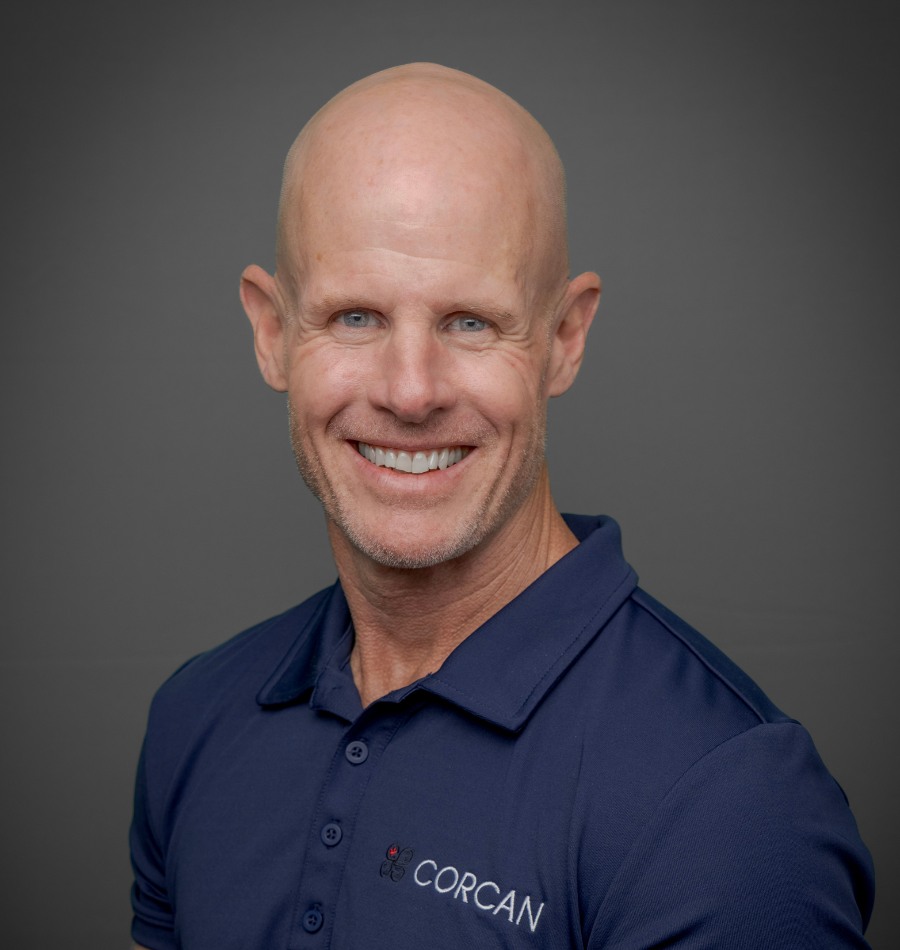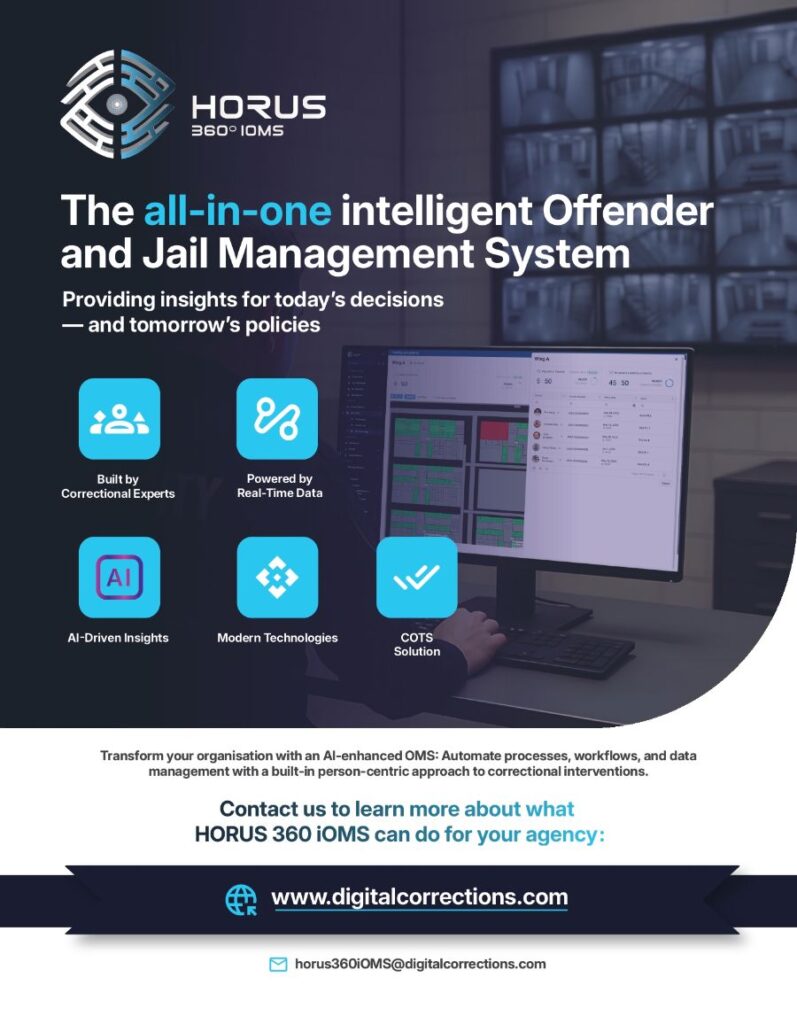Interview
Chris Hill
Chief Executive Officer, CORCAN
With over two decades of experience in federal corrections and a period in the private sector as COO of one of Canada’s largest trades contractors, Chris Hill brings a unique dual perspective to CORCAN Industries, the branch of the Correctional Service of Canada that combines a business operation with reintegration programming.
In this interview, he reflects on the challenge of preparing individuals for life after incarceration, the advantages of CORCAN’s enterprise-based model, and the complex task of building employer trust while balancing programme outcomes with operational demands.
Can you describe CORCAN’s mission and the evolution of its priorities?
CH: As a Special Operating Agency of the Correctional Service of Canada, at its core, CORCAN is an employment training programme for federal offenders. What makes this programme unique, and I think special, is it almost always involves the production of goods that are sold into the market, creating a certain symmetry that is very compelling. We provide value, often contributing to major infrastructure projects in Canada, like the construction of border crossings facilities, while also delivering significant public safety value by equipping federal offenders with highly marketable employment training and skills. We do this while administering a correctional training programme that all but pays for itself.
CORCAN has evolved significantly over the last number of years – not only in size and the complexity of the work we do, but also in the employment training we offer, which has become far more integrated across our business lines: Construction, Manufacturing, Textiles, Services and Agriculture and Lands Management. Alongside this, we have an Employment and Employability offering that includes vocational training and employment coordination services.
Whether it is a complete office retrofit or turnkey modular construction, where homes are completely equipped with all finishings and furnishings, we are capable of going right from concept and design to execution and delivery, supported all along with both theoretical and practical employment training. In terms of our priorities, we are a culture-driven organisation and are guided by philosophies of innovation, continuous improvement and mutual support. In fact, I recently hosted an all-staff townhall where I spoke about these topics and the importance of not holding yourself to a standard of perfection, but instead aiming to be better tomorrow than we are today. After all, we are modelling a standard for the federal offenders in our programmes, and we want them too to hold themselves to a standard where success is measured through incremental, often small, improvements.
Innovation is also a significant part of our culture. To truly innovate, you have to run the risk of making mistakes, and responsible risk-taking is a healthy part of our process. We encourage creativity and mistake-making where we are always “failing forward”. Again, this is not only a healthy adage in a correctional environment, but also from a customer service perspective, where we want to anticipate and experiment as to where any given market is going, rather than where it is.
Lastly, but perhaps most importantly, we have an “ask for help” culture. We work in an industry where for far too long, people have felt as though they need to suffer in silence. The truth of the matter is that everybody needs help and that there is no one person who has it all figured out. In fact, we have a weekly executive meeting where each executive is asked to speak to three things: What good news they have to share; what their priority for the day is; and what help they need. In emphasising the “ask for help” culture amongst the most senior executives, we start to normalise it for the rest of our staff.
JT: CORCAN operates in a business-like fashion, engaging and training offenders in actual production across multiple sectors.
What advantages does this enterprise-based model offer in preparing individuals for the realities of work after release?
CH: One of our primary goals is to ensure that we are providing marketable employment training. By operating in a business-like manner – selling our products to market – there are naturally occurring programme indicators that tell us where the employment market is going.
Put simply, if our products are not selling well, the skills and competencies that go into their production may not be as marketable as they could or should be.
That tells us we need to adapt and innovate. This requires a degree of agility, where we are always working to ensure that our programme is appropriately calibrated to the market.
Another advantage to operating in a business-like manner is that we are obligated to emulate community standards in terms of quality assurance, quality control and customer service. This is a good thing, as it provides a training experience that mirrors what programme participants will encounter in the community, thus better preparing them to succeed in those environments. And, because we are a large programme operating in over three dozen sites cross an expansive geography, we have the ability – and indeed the obligation – to customise our programme based on regional market environments and employment opportunities.
Lastly, we are a national organisation, and we have centralised our offerings under a national leadership model and structure. This offers a number of advantages, not the least of which is that we can bolster, as necessary, any regional operation, project or initiative with national expertise and resources.
What are the main challenges in helping individuals successfully reintegrate after incarceration? And how is CORCAN using data and practical insights to respond to these challenges and shape program decisions?
CH: Certainly, one of the main challenges is the reluctance of employers to hire an individual under federal sentence. I suspect that this has always been the primary obstacle, and to be frank, I understand this hesitation and where it comes from. It’s also not terribly difficult to see why this resistance occurs.
For the longest time, as a Correctional Service, we operated under an environment where we simply kept our “heads down” and hoped that the general public didn’t talk about us or pay much attention to what we were doing. The problem with this approach, however, is that it creates enormous information vacuums. And because we typically only communicated when something negative had happened, the public filled those vacuums with negative information and perceptions.
Beyond the obvious negative consequences of this approach, we overlooked the countless positive stories that we could be filling this vacuum with. I think that we are doing a much better job of this today, but I believe that there are even further opportunities to take control of the narrative associated with our collective story. If you refer to my personal LinkedIn account, we now post regularly, twice a week, with the sole purpose of better telling our story, and highlighting all the positive things that are happening.
Our hope, and in fact we are starting to see this happen, is that potential employers will engage with us wanting to learn more about how CORCAN participants can play a significant and positive role in joining their workforce teams.
With respect to being a data-driven organisation, there is no question that we have started to lean into this as a strategy as we have grown and taken on more complex projects. Not unlike most large organisations, we have a series of Key Performance Indicators that act as our “check engine” light so that we can address issues before they become problems. The added challenge for the CORCAN programme, and programmes like it, is that every business decision must be checked against the number, type and quality of offender training hours that will be offered as a result of any work we secure. This is the very healthy tension that exists between operating as both a good business and a good programme; leaders have to be very effective stewards of both, and performance in one area should never come at the expense of performance in the other.
It is an exciting time to be part of CORCAN. As our country deals with its fair share of the contemporary crises that are facing this generation, such as unemployment, housing, equity, safety and security and the climate, to name but a few, we are constantly challenged, and challenging ourselves, as to how we, as a CORCAN team, can play our part, large or small in leaving our broader Canadian community better than how we found it.
Chris Hill
Chief Executive Officer, CORCAN
Chris Hill began his career as a Parole Officer in 1999, and went on to hold a range of operational, reintegration, and executive leadership roles within the Correctional Service of Canada (CSC), the last of which was Director General of Labour Relations and Workplace Wellness for CSC. After leaving the public service in 2017, he became COO of Modern Niagara, Canada’s largest trades contractor, leading the company through major growth and helping it earn recognition as one of Canada’s Top 100 Employers in 2019 and 2020. Returning to corrections as CEO of CORCAN Industries, he is known for his intensity, passion, and ability to analyse, develop and represent comprehensive strategic plans in the face of pressing and complex issues.
Advertisement



